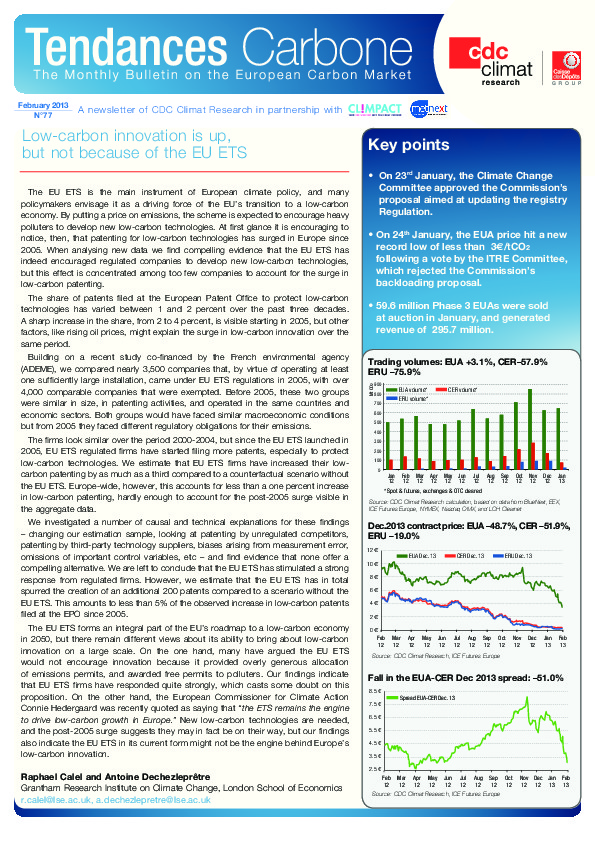Low-carbon innovation is up, but not because of the EU ETS
The EU ETS is the main instrument of European climate policy, and many policymakers envisage it as a driving force of the EU’s transition to a low-carbon economy. By putting a price on emissions, the scheme is expected to encourage heavy polluters to develop new low-carbon technologies. At first glance it is encouraging to notice, then, that patenting for low-carbon technologies has surged in Europe since 2005. When analysing new data we find compelling evidence that the EU ETS has indeed encouraged regulated companies to develop new low-carbon technologies, but this effect is concentrated among too few companies to account for the surge in low-carbon patenting.
